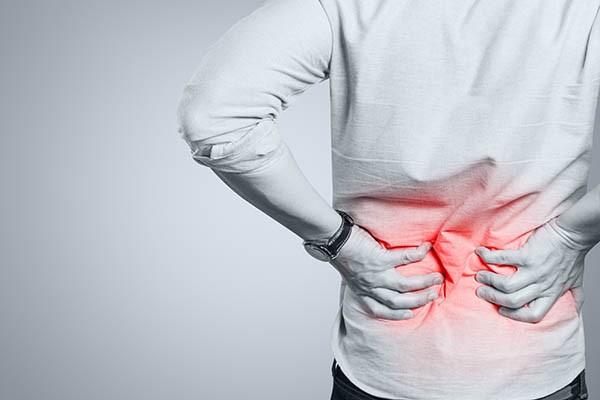June 2nd, 2020

Lower back pain is one of the most common orthopedic problems people encounter. It's estimated that over 30 million Americans suffer from this issue. If you ask the best spine surgeons in Atlanta, they'll tell you around 20% of these individuals will go on to develop a chronic condition, such as spinal stenosis or herniated discs.
Although many in their early twenties have lower back issues, it's more prevalent in people who are 30 years old and above. As a person grows older, the discs between the bones in their spine get worn down. So, they're likely to experience pain when they put pressure on their vertebrae. Even simple daily activities can cause discomfort or injury. Read on to learn which ones are potentially harmful.
Working While Sitting at Your Desk
Whether it's at the office or home, people spend at least 40 hours a week sitting at their desks. They don't even get up during an 8-hour shift and usually stay in the same position. This puts a lot of strain on their spine, especially if they don't practice the correct posture. In this pose, the pressure the intervertebral discs experience increases by about 300%. Regular and prolonged exposure to compression will lead to the development of degenerative diseases.
To avoid problems, don't stay seated longer than an hour. Spine and orthopedic specialists recommend standing up every 30 minutes and walking around to relieve the strain and alleviate disc compression. Make sure you also practice the right posture when working, sitting up straight at a 90- to 100-degree angle perpendicular to your leg position and with your shoulders back. This will help you retain a neutral spinal shape, equally distributing pressure to the cervical, thoracic, and lumbar regions.
You can also get a standing desk. Alternating between sitting and standing will help you stay productive while resting your spine.
Shaving Facial Hair or Brushing Your Teeth
Even small tasks can potentially cause back problems, especially when people practice bad posture when doing them. Some lean over the sink while shaving facial hair or brushing their teeth if the bathroom mirror is placed low on the wall. They'll spend 10 minutes or more in this position, straining the lumbar region, as it carries the whole weight of the upper body. It can also damage the cervical discs in the neck since they support the head, which on average is at least 8 to 12 pounds.
So, stand up straight when brushing your teeth or shaving to keep the vertebrae aligned. You can also buy a taller mirror or place yours higher on the wall so you won't have to lean down.
Doing Weight Lifting Exercises
Lifting weights is good for your health. It improves your strength and builds muscles. But, if you don't do exercises such as deadlifts and barbell squats with the right posture, you can hurt your spine.
Plenty of people practice the incorrect lifting form or carry weights that are too heavy for them. They end up straining the ligaments and muscles in their back or even get more serious injuries like slipped or herniated discs. Ask a professional fitness trainer to teach you how to do exercises properly.
Sleeping
Many individuals complain of waking up with pain in the lower spinal region. This is often due to a bad sleeping position that strains their back. Studies show this problem is more common for those who lie on their belly. In this pose, most of their weight is concentrated in the middle of their body, putting too much pressure on the lumbar area.
It's best to pick a neutral sleeping position such as lying on your back. The head, neck, and spine are properly aligned in this pose, so your weight is evenly distributed. You can also put a pillow underneath your knees to support the natural curve of the lumbar vertebrae and further alleviate any strain.
Even when doing daily activities, you must be mindful of your movements and posture to prevent issues such as spinal stenosis in Atlanta. Contact Piedmont Orthopedics l OrthoAtlanta for more advice on caring for your back.
Back






